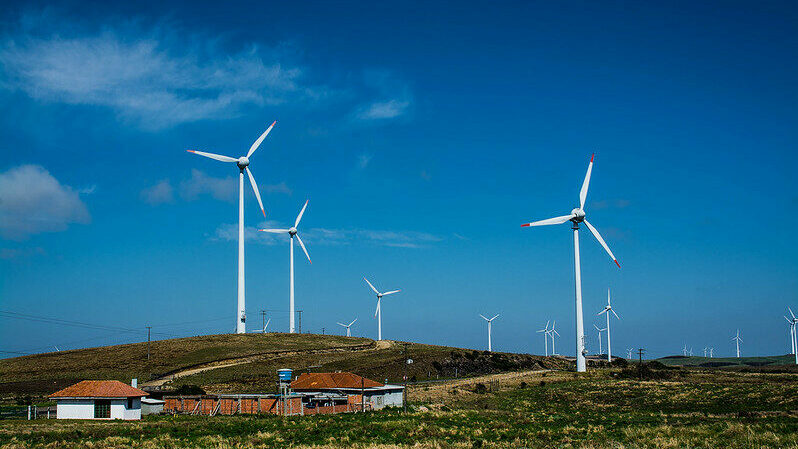Despite the pandemic, an IDB platform continues to support Latin American and Caribbean (LAC) countries transition towards net-zero emission and climate-resilient economies.
NDC INVEST, a platform created by the Inter-American Development Bank, is considering ways it can best help nations during the pandemic, and how to deliver assistance to support an economic recovery consistent with a just transition and the Paris Agreement’s goals.
Declared as a pandemic by the World Health Organisation last month, the novel coronavirus is sweeping across the globe at an alarming rate as governments close their borders and shut down entire economies to prevent further spread of the disease.
The UN has postponed COP26, a critical climate summit that was set to take place in November in the UK, and there is growing concern that international climate momentum is stalling as the battle against coronavirus takes precedent.
While Latin American and Caribbean countries work tirelessly to confront the pandemic with limited resources and vulnerable healthcare systems, the IDB platform is providing key resources to ensure efforts to implement and revise country commitments remain supported.
NDC INVEST was created in 2016 to support countries implement their Nationally Determined Contributions (NDCs) which aim to reduce greenhouse gas emissions and adapt to climate impacts.
The platform is working in 25 LAC countries and helps to translate national climate commitments into physical and beneficial economic plans and transformational development projects.
It acts as a comprehensive one-stop shop to help countries across the entire project cycle. This means supporting national ministries in developing sustainable policies, designing and implementing projects, and mobilizing financial resources.
The success of the platform stems from in its cross-functional approach where the entire IDB Group is involved working in diverse areas including climate change, transport, and energy. The platform, through the IDB’s private sector entity IDB Invest, also supports the private sector to invest in viable green alternatives over traditional business models.
NDC INVEST is unique in that it avoids the typical response a multilateral development bank provides to a host country, such as stand-alone wind or solar projects. Instead, the IDB works with countries to overcome barriers such as scaling up investments, which might be undermining greater progress.
In 2019, the platform became the largest NDC-related initiative among the Multilateral Development Banks with 262 initiatives: 107 supporting the public sector and 155 working with the private sector.
A key focus is working with countries to raise the ambition of their NDCs. With the help of the platform, the government of Suriname increased the ambition of its NDC including rising the goal for renewable electricity generation from 25% to 35%. This was advanced through the adoption of a renewable energy law, as well as measures to promote energy efficiency.
With most of its population concentrated in low-lying coastal areas, Suriname has experienced first-hand climate impacts through flooding and erosion leading it to become listed as a Small Island Developing State (SIDS).
The country also committed to maintaining 93% forest cover – a vital carbon sink in the region – which led to implementing a REDD+ strategy (Reducing Emissions from Deforestation and forest Degradation). Through a participatory process, Suriname was able to present its revised NDC at COP25 and is committed to continuing its ambitious work for a carbon-neutral future.
Working alongside the Chilean government and in particular the Ministry of Finance, the platform also supported the development of the country’s Financial Strategy on Climate Change. The strategy provides a framework to direct financing towards the objectives of the new NDC and plans to achieve carbon neutrality by 2050.
NDC INVEST has also worked closely with the government of Costa Rica to support the design of its National Decarbonization Plan. The country aims to become a net-zero emission economy by 2050 by focusing on nature-based solutions, reforestation and electric mobility. This led to a US$230 million policy-based loan from the IDB to support the implementation of the plan.
Lastly, the platform is working with the government of the Dominican Republic with the development of a comprehensive risk management system that considers climate and natural disaster risk scenarios in transport infrastructure such as bridges and roads.
Prospects for a green and inclusive economic recovery
While the coronavirus dominates the attention of decision makers across the world, the climate crisis represents a deeper emergency especially in Latin America and the Caribbean, which is highly vulnerable to climate impacts.
The pandemic shows us that there is a willingness from leaders across the world to intervene proactively and decisively to confront a crisis and protect lives and livelihoods.
NDC INVEST is working to help countries implement their NDCs, which can bring important economic benefits, and also plan ahead with the design of strategies to reach net-zero emissions by 2050 via a just transition to support affected workers.
The platform will continue to work with LAC governments to make the shift towards net-zero emission, climate-resilient and sustainable development pathways that improve the quality of life and prosperity in the region.
Raúl Delgado is Lead Specialist in the IDB’s Climate Change Division; Scarleth Nuñez Castillo is a consultant in the Climate Change Division at the IDB.
More information on the platform can be found here: www.ndcinvest.org
This post was sponsored by the Inter-American Development Bank. See our editorial guidelines for what this means.
